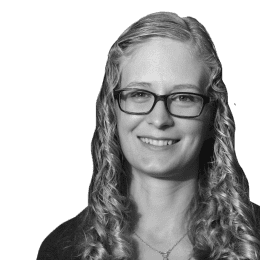Who among us has not, upon awakening to the glory of a weekend morning, wondered what breakfast would be like if all the bacon were as smooth as granite? Or perfectly crispy? What if the eggs in the pan gave off a cinnamon aroma or if the sizzling sausage tasted like lox?
Maybe that got a little weird. But it is bound to. After all, we are now traversing the fringes of food science, where cutting-edge research reshapes the future of what we put in our mouths. These innovations expand the scope of what is possible. Some of those expansions are exciting. Some may be uncomfortable.
In this episode of Eating Tomorrow, we explore the scientific advancements in food technologies. There will be resurrected extinct mammal sliders, cell-cultured chicken thighs, and printed ribeye steak from plastic bottles. More than an entertaining tour of the possible, the purpose of this journey is for you to determine what future you want based on the future that could be.
How does exploring the edges of science inspire us to make different choices today? What are the ethical concerns we have about the application of science to our food?
Main Course
- Exit reality and enter the meatspace with Claire Bomkamp, lead scientist for cultivated meat and seafood with Good Food Institute.
- Food innovator, Ben Feltner wizards plastic into meaty biomass. This steak can “in theory” be eaten.
- Turns out that yesterday’s pile of gym clothes is tomorrow’s flight of cheese. Christina Agapakis makes cheese from human bacteria as part of her project, Selfmade.
- Finally, an answer to why it’s hard for you to eat your broccoli. It could be because you (well, your DNA) is radically particular. Dr. Martin Kohlmeier, a leading researcher of nutrigenetics, demystifies the relationship between genetics and nutrients.
- Listen for the Soy Bonus: Soy in space.
Extra Helpings
- You may have already eaten lab-grown meats at your favorite local restaurant. The U.S. Department of Agriculture granted its first-ever approval of cell-cultured meat.
- Back in 2019, Christina Agapakis was rubbing elbows and belly buttons with the stars to create celebrity bacteria cheese boards.
- Steakholder Foods, an Israeli start-up has developed the technology to 3D-print fish fillets.
Next up on the plate:
Pic-Net
What more is possible for the future of food if we acknowledge our limits?
Listen Now



